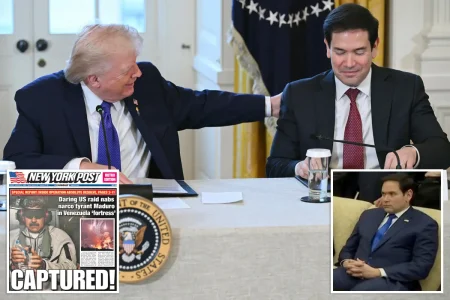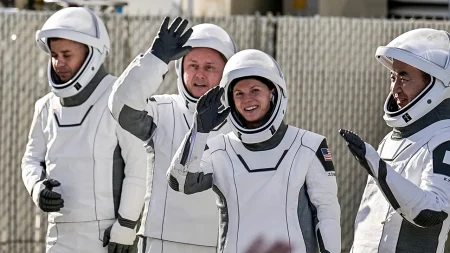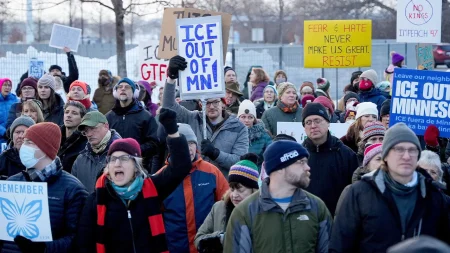Zelensky’s Masterful Wartime Leadership Faces Its Greatest Challenge in U.S. Peace Proposal
The Calculated Strategist: How Ukraine’s President Has Navigated Four Years of Conflict
In the dimly lit situation room beneath Kyiv’s presidential administration building, Volodymyr Zelensky has made decisions that have altered the course of European history. From the opening salvos of Russia’s full-scale invasion to the current war of attrition, Ukraine’s wartime president has demonstrated a remarkable ability to navigate impossible situations with strategic acumen that has repeatedly confounded both allies and adversaries. Now, as Washington signals a potential shift toward peace negotiations, Zelensky faces what military and diplomatic analysts consider his most complex challenge yet: maintaining Ukraine’s sovereignty while potentially engaging with a peace plan that could require painful compromises.
“Zelensky’s political instincts have proven extraordinarily sharp throughout this conflict,” explains Dr. Alina Polyakova, foreign policy expert at the Brookings Institution. “He’s consistently transformed seemingly weak positions into moments of leverage by understanding both the practical military reality on the ground and the psychological aspects of international support.” This capacity for strategic thinking wasn’t always evident in the former comedian and actor who won the presidency in 2019 on an anti-corruption platform. His early presidency was marked by mixed domestic results and skepticism from Ukraine’s political establishment. Yet when Russian forces massed on Ukraine’s borders in early 2022, Zelensky revealed a different dimension to his leadership—one defined by clear-eyed pragmatism balanced with unwavering moral clarity about his nation’s right to exist as a sovereign democracy.
The Ukrainian leader’s wartime record reveals a pattern of calculated risk-taking that has paid significant dividends. When Russian forces initiated their invasion, intelligence agencies worldwide expected Kyiv to fall within days. Zelensky’s now-iconic response to American evacuation offers—”I need ammunition, not a ride”—galvanized global support and established the narrative framework through which the world would understand the conflict. “That wasn’t just a powerful sound bite; it was strategic communication that fundamentally altered how Western powers perceived Ukraine’s resolve,” notes Emma Ashford, senior fellow at the Atlantic Council. In subsequent months, Zelensky’s virtual addresses to parliaments worldwide—each carefully tailored to resonate with national historical touchpoints—secured unprecedented military aid packages that have been crucial to Ukraine’s defense. His administration simultaneously pursued membership in the European Union while managing complex relationships with neighboring states like Poland and Romania—nations that have become vital logistics hubs for Western support.
Navigating Battlefield Setbacks and Diplomatic Challenges with Strategic Foresight
Zelensky’s ability to convert military setbacks into strategic advantages has particularly impressed defense analysts. When Russian forces captured large swaths of Ukrainian territory in the east, Zelensky’s military advisors executed a flexible defense that traded space for time—allowing for the integration of Western weapons systems while degrading Russian force strength. The subsequent counteroffensives in Kharkiv and Kherson regions demonstrated Ukraine’s capacity for sophisticated combined-arms operations that surprised NATO planners. “What we’ve seen is a civilian leader who understands the language of military strategy without micromanaging his generals,” explains retired Lieutenant General Ben Hodges, former commander of U.S. Army Europe. “Zelensky has shown remarkable restraint in allowing his military professionals operational autonomy while maintaining clear strategic objectives.”
Perhaps most consequential has been Zelensky’s handling of the delicate diplomatic balancing act between gratitude toward Western supporters and forthright advocacy for Ukraine’s needs. When ammunition shortages threatened to collapse front-line positions in 2023, Zelensky’s direct appeals to specific European capitals—often against diplomatic advice to moderate his tone—ultimately unlocked critical artillery shell production increases across NATO countries. Similarly, his persistent campaign for F-16 fighter jets eventually overcame initial Western reluctance. “He’s mastered the art of being simultaneously grateful and demanding,” observes Thomas Graham, distinguished fellow at the Council on Foreign Relations and former senior director for Russia on the U.S. National Security Council. “Zelensky intuitively understands that international attention spans are limited, and he’s been extraordinarily effective at keeping Ukraine at the center of global consciousness despite multiple competing crises.”
The Peace Plan Dilemma: Sovereignty, Territory, and Strategic Compromise
The current moment represents what many consider Zelensky’s most daunting leadership test. With American and European resources strained, and clear signals from Washington about the need for a negotiated settlement, Zelensky must now determine how to engage with peace proposals without sacrificing core Ukrainian objectives. “The fundamental challenge is reconciling Ukraine’s legitimate aspirations for full territorial integrity with the brutal realities of a military situation that has evolved into something resembling a stalemate,” explains Dr. Fiona Hill, former National Security Council official and Russia expert. The Biden administration’s emerging peace framework—which reportedly includes provisions for phased sanctions relief for Russia in exchange for territorial concessions from Ukraine—presents Zelensky with excruciating choices about what constitutes acceptable compromise.
Ukrainian public opinion remains overwhelmingly opposed to territorial concessions, particularly regarding Crimea and the eastern Donbas regions. Internal polling from Zelensky’s office indicates that 78% of Ukrainians believe reclaiming all occupied territories should remain a non-negotiable objective—creating potential domestic political complications for any leader who appears to accept permanent Russian control over Ukrainian land. “Zelensky understands that while external support is essential, his legitimacy ultimately derives from representing the Ukrainian people’s will,” notes Steven Pifer, former U.S. ambassador to Ukraine. “His challenge now is determining whether certain compromises might actually strengthen Ukraine’s long-term sovereignty by securing unambiguous Western security guarantees and reconstruction assistance.” Intelligence sources indicate that Zelensky’s inner circle is exploring creative approaches that could square this circle—including proposals for demilitarized zones, international administration of disputed territories, and extended timelines for resolving final status questions that would allow for immediate ceasefire without permanently surrendering sovereignty claims.
Beyond the Battlefield: Securing Ukraine’s Democratic Future and Western Integration
Throughout nearly four years of war, Zelensky’s leadership has extended beyond military considerations to include reforms necessary for Ukraine’s eventual integration into Western institutions. Despite wartime conditions, his administration has implemented significant anti-corruption measures, judicial reforms, and economic policies aligned with EU requirements—sometimes against resistance from entrenched interests within Ukraine itself. “This demonstrates remarkable strategic vision,” explains Dr. Timothy Garton Ash, professor of European Studies at Oxford University. “Even while fighting for national survival, Zelensky has recognized that Ukraine’s future prosperity and security ultimately depend on becoming an unambiguous member of the European democratic community.”
The peace proposal dilemma now requires Zelensky to determine what constitutes acceptable compromise without abandoning this broader vision. His response will likely involve extensive consultation with Ukrainian military leadership, civil society representatives, and key international partners. Diplomatic sources suggest he may seek formal assurances regarding Ukraine’s NATO membership timeline in exchange for flexibility on certain territorial questions—effectively trading immediate full territorial control for permanent security guarantees that would prevent future Russian aggression. “The critical calculation involves determining whether specific territorial compromises might actually strengthen Ukraine’s sovereignty in the long term by securing its place in Western security structures,” explains Michael Kofman, senior fellow at the Carnegie Endowment and specialist in Russian military affairs.
The Statesman’s Legacy: Defining Victory in an Imperfect World
As Zelensky navigates these extraordinary challenges, historians are already assessing his place among wartime leaders of the modern era. “What distinguishes truly great crisis leadership is the capacity to maintain moral clarity while making painful pragmatic choices,” observes presidential historian Doris Kearns Goodwin. “Zelensky has consistently demonstrated this balance—refusing to surrender fundamental principles while accepting tactical adjustments required by circumstance.” His decisions regarding potential peace negotiations will inevitably shape not only Ukraine’s future but his own historical legacy.
The Ukrainian leader himself appears to understand these stakes with characteristic clarity. In recent addresses, he has begun preparing the Ukrainian public for difficult conversations about what constitutes acceptable terms for ending Europe’s largest land war since 1945. “True sovereignty isn’t just about lines on maps,” he told Ukraine’s parliament last month. “It’s about ensuring that Ukrainians can determine their own democratic future within a community of nations that respects international law.” This framing suggests a leader preparing to make consequential decisions while maintaining the moral framework that has guided his wartime leadership.
Whatever the outcome of potential peace negotiations, analysts across the political spectrum acknowledge that Zelensky has already achieved something remarkable: transforming Ukraine from what many considered a geopolitical footnote into a nation whose democratic aspirations and territorial integrity have become central to discussions about the future of the European security order. “Even if circumstances force difficult compromises,” concludes Anne Applebaum, Pulitzer Prize-winning historian and Ukraine expert, “Zelensky has ensured that Ukraine’s voice cannot be ignored in determining its own future—and that may be his most enduring achievement as a wartime leader.”










